Portugal has become a popular choice for families moving from other countries. With a warm climate, safe cities, and a peaceful way of life, it’s no surprise more people are calling this country home. But when it comes to raising kids abroad, one big concern parents often have is finding the right school. That’s where International Schools in Portugal come in.
These schools are designed for families who want their children to study in English or other languages. They also follow teaching programs used around the world, like the British or American systems. This makes it easier for students to move between countries without falling behind in school.
In recent years, there’s been a rise in the number of International Schools in Portugal. Whether you’re living in Lisbon, Porto, or the Algarve, there are many choices available. Some schools are new and modern, while others have been serving families for decades.
In this guide, we’ll look at how International Schools in Portugal work, what they offer, and how to choose the best one for your child. We’ll also explain the fees, how to apply, and where to live nearby. This way, you can make the best decision with confidence.
Why Parents Choose International Schools in Portugal
Moving to a new country comes with many changes, and schooling is one of the biggest ones. For many families, choosing local schools can be difficult due to the language barrier. That’s why more parents are now turning to International Schools in Portugal. According to the Portuguese National Institute of Statistics (INE), Portugal has a population of over 10 million people.
The biggest reason is the language of instruction. These schools mainly teach in English, French, or German, which makes it easier for foreign students to adjust. It also means they won’t fall behind if they later return to their home country.
Another reason parents prefer these schools is the teaching style. International Schools in Portugal often focus more on discussion, teamwork, and problem-solving than just memorizing facts. Children are encouraged to think for themselves and share their ideas openly.
Many of these schools have strong reputations. They prepare students for international exams like the IB Diploma, IGCSE, or SAT. This opens doors for college and university admissions abroad. For expat families, this continuity is very important.
Social life is also easier for children in international schools. They meet classmates who have had similar experiences, moving from one country to another. This helps kids make friends faster and feel like they belong.
Finally, safety and comfort matter. Most International Schools in Portugal have clean buildings, modern facilities, and safe environments. Parents appreciate the smaller class sizes, which allow more personal attention.
In short, whether you’re moving to Portugal for work, retirement, or a better lifestyle, your child’s education doesn’t need to be a worry. With the growing number of International Schools in Portugal, families have access to world-class learning right here in Europe.
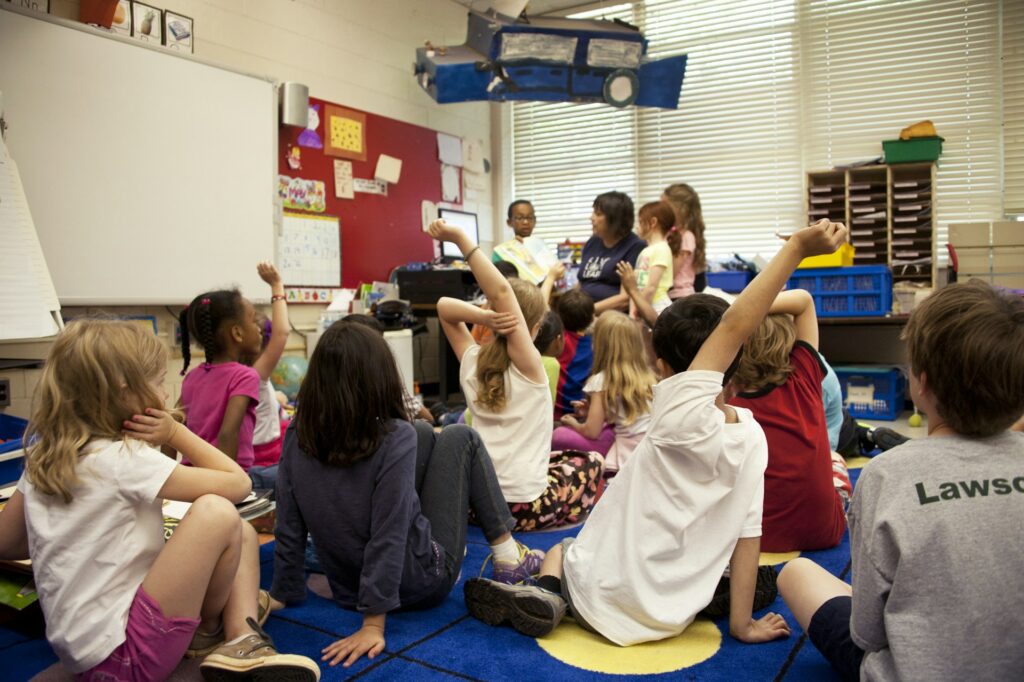
What to Expect from an International School
When families think about moving to a new country, one major concern is how their children will adjust in school. The good news is that International Schools in Portugal make this process easier.
In most international schools, English is the main language used in classrooms. This is especially helpful because Portugal consistently ranks high in English proficiency, securing 8th place globally in Education First’s 2023 rankings. Children from non-Portuguese speaking homes can learn smoothly and comfortably.
But it’s not just about the language. These schools focus on learning in a more practical way. Instead of just reading textbooks or writing exams, students often do projects, group work, and presentations. Teachers encourage questions and discussions, which helps students grow more confident and active in class.
You’ll also find a strong focus on extracurriculars. Students can join sports teams, music groups, art clubs, or robotics groups. Many International Schools in Portugal believe that learning doesn’t stop when the bell rings. It continues in all kinds of creative and social spaces.
Class sizes are usually smaller than public schools. This means teachers can give more attention to each student, which is helpful especially for children adjusting to a new place.
Portugal’s national education system is improving as it ranked 34th in the world according to CEO World Magazine’s 2024 survey. Some expat families feel more confident choosing an international school. They like knowing their kids will follow a familiar school system and stay on track if they move again.
In short, International Schools in Portugal offer a welcoming, well-organized space for kids from around the world. Parents can expect strong academics, open communication, and modern facilities that support every child’s learning.
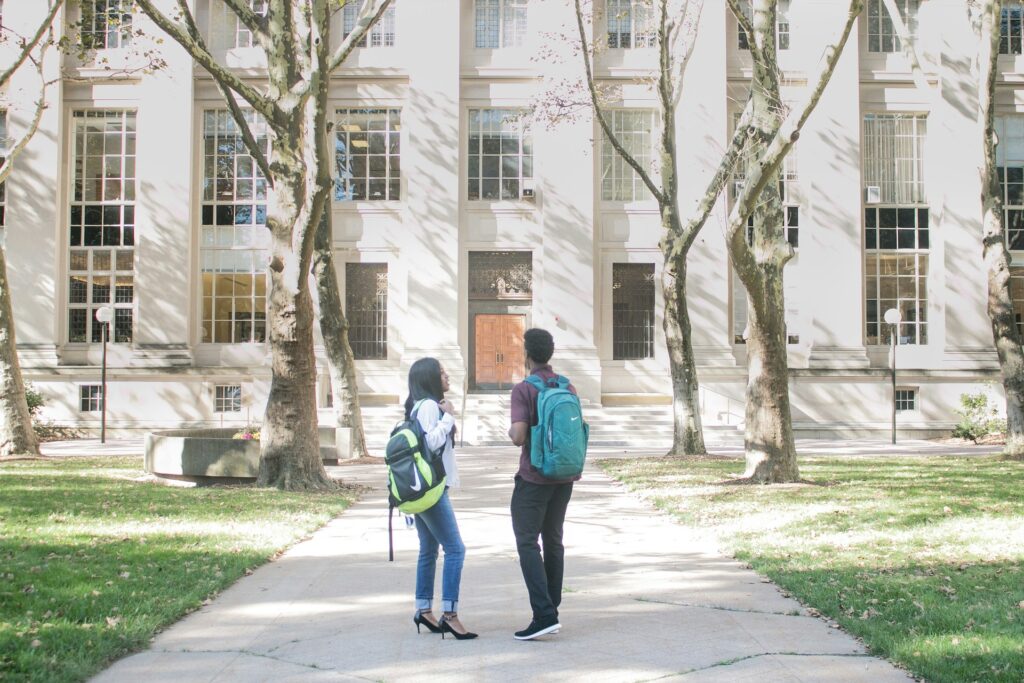
Popular International Curriculums in Portugal
One of the main reasons families choose International Schools in Portugal is the variety of well-known school curriculums available. These systems are used in schools across the world, making it easier for students to continue their studies if they move to another country.
Here are the main curriculums you’ll find in Portugal’s international schools:
British Curriculum (IGCSE and A-Levels)
This is one of the most common options. It’s used in many international schools in Lisbon, Porto, and the Algarve. Students follow the Cambridge or Edexcel system, leading to exams like the IGCSE (International General Certificate of Secondary Education) and A-levels. These are well-respected and accepted by universities across the UK, Europe, and beyond.
American Curriculum (High School Diploma and SAT)
Some International Schools in Portugal follow the American school structure, which includes middle school, high school, and a GPA grading system. Students may also take standardized tests like the SAT or ACT if they plan to study in the U.S. Schools following this program often encourage a strong mix of academics and extracurriculars.
International Baccalaureate (IB)
The IB Diploma is another popular choice, known for its high academic standards. It’s ideal for students aged 16 to 19 who want a balanced and globally accepted education. Many International Schools in Portugal are certified IB World Schools, offering the Primary Years Programme (PYP), Middle Years Programme (MYP), or Diploma Programme (DP).
Other Curriculums
There are also French, German, and even Scandinavian schools in Portugal. These schools follow their home country’s systems and are usually supported by their embassies or cultural institutes.
Choosing the right curriculum depends on your child’s future goals, language comfort, and educational background. But whichever path you pick, International Schools in Portugal offer systems that are trusted worldwide.

Best-Rated International Schools in Portugal
Portugal is home to several highly respected international schools, many of which have earned strong reputations for their academic success, student care, and global outlook. These schools welcome children from all over the world and help them grow with a mix of classroom learning, cultural understanding, and personal attention.
Here are a few examples of International Schools in Portugal that are often recommended by parents and expat communities:
Carlucci American International School of Lisbon (CAISL)
Located in the town of Sintra, CAISL follows the American system and is the only U.S. State Department-sponsored school in Portugal. It serves students from early years through high school and prepares them for college in the U.S. and other countries.
St. Julian’s School (Carcavelos, Lisbon)
This is one of the oldest and most popular international schools in the country. It offers both the British curriculum and the International Baccalaureate (IB) diploma. St. Julian’s has a strong academic record and a vibrant school community.
Oporto British School (Porto)
Founded in 1894, it is one of the oldest British schools in continental Europe. Oporto school has a long tradition of academic strength and offers both the British curriculum and the IB diploma. It’s known for its dedicated teachers and supportive environment.
Nobel Algarve British International School (Lagoa)
Nobel school offers British education from early years through secondary school and combines strong academics with a wide range of extracurricular activities. It has a second campus in Almancil, serving the western and central Algarve.
International School of Cascais
ISC school with a family-friendly atmosphere, it focuses on early years and primary education. It’s popular among families with younger children looking for a caring, close-knit school environment.
Each of these schools provides something unique, but all share the same focus: to help students succeed in a global world. With so many quality choices, families looking into International Schools in Portugal can feel confident in finding a great match for their children.

Top Cities in Portugal with International Schools
When choosing a school, location is often just as important as the curriculum. Fortunately, many International Schools in Portugal are located in areas that are popular with expat families. These cities offer a good mix of quality education, safety, and family-friendly lifestyles.
Lisbon
As the capital city, Lisbon offers a strong selection of international schools within the city itself. You’ll find schools offering the British, American, and International Baccalaureate (IB) curricula, along with a few that follow French or German programs. These schools are ideal for families who prefer to live in central Lisbon, close to urban amenities, culture, and professional opportunities.
Lisbon attracts professionals and families from across Europe and the U.S., creating a diverse, multicultural environment for students. English is widely spoken both in schools and daily life, making it a smooth transition for international families.
Greater Lisbon Area (Cascais, Oeiras, Carcavelos, Sintra)
The Greater Lisbon Area, including towns like Cascais, Oeiras, Carcavelos, and parts of Sintra, is home to many of Portugal’s most popular international schools. These areas are just a short drive or train ride from Lisbon and are especially attractive to families who want proximity to beaches, international communities, and a more residential lifestyle.
Many international schools in these areas offer modern campuses, strong extracurricular programs, and English-based instruction. Thanks to easy access to Lisbon and a high quality of life, the Greater Lisbon Area is a top choice for families relocating to Portugal.
Algarve
The southern coast of Portugal, known as the Algarve, is home to several respected international schools. It’s a top choice for families who value good weather, outdoor life, and smaller communities. Cities like Faro, Lagoa, and Aljezur have schools that attract both long-term residents and seasonal expats.
Porto & Braga
Portugal’s second-largest city, Porto, has a growing number of international schools. It combines historical charm with modern living, and its schools are known for offering strong academic programs and excellent care for students. Some families prefer Porto because it’s slightly quieter and more affordable than Lisbon.
Nearby, Braga is also gaining popularity among international families. Known for its vibrant student population and quality of life, Braga now offers several international education options, making it an attractive alternative for those seeking a smaller, dynamic city with a strong community feel.
Other Notable Areas
You can also find international schools in less crowded areas like Setúbal, Leiria, and Madeira. These regions offer a more relaxed lifestyle, often with a lower cost of living compared to Lisbon or Porto.
Each location has its own unique charm—Setúbal is known for its coastal beauty and proximity to natural parks, Leiria offers a quiet, family-friendly atmosphere with growing expat interest, and Madeira, the island region, combines subtropical scenery with an increasing number of international residents and school options.
Map of International Schools in Portugal
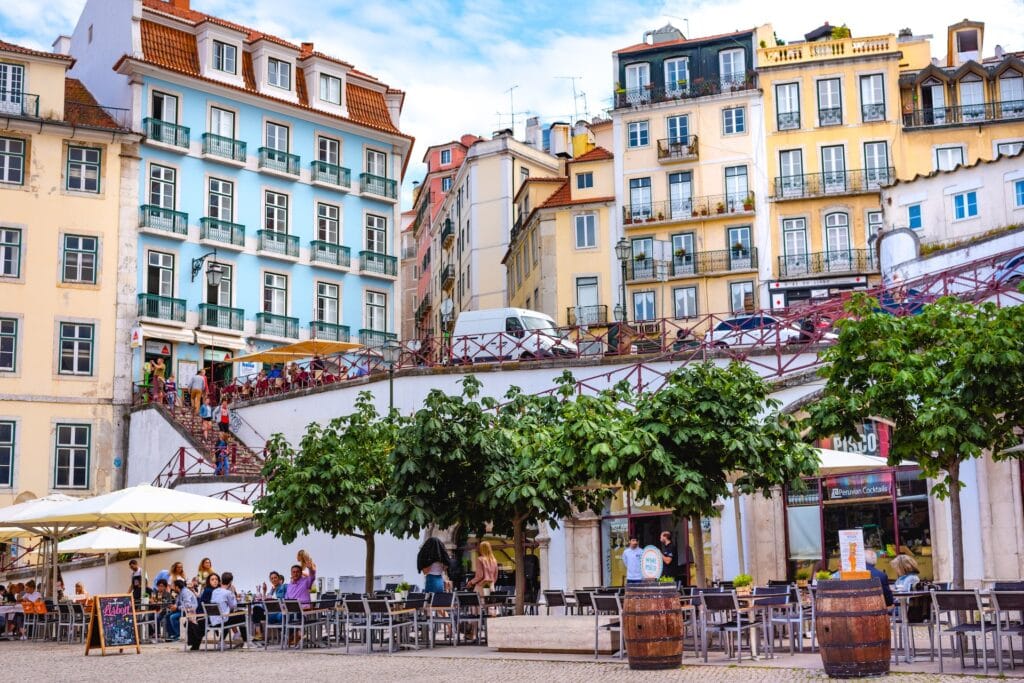
International Schools in Lisbon
- The Lisbon International School – Alcântara
- The British School of Lisbon – Santo António
- Lycée Français Charles Lepierre Lisbonne – Campolide
- PaRK International School – Avenidas Novas
- Redbridge School – Campo de Ourique
- Astoria International School – Alvalade
- Cesário Verde International School – Parque das Nações
- Deutsche Schule Lissabon – Lumiar
- United Lisbon International School – Parque das Nações
- L’École Trilingue – Belém
- The Lisboan – Alcântara
Map of International Schools in Lisbon
International Schools in Greater Lisbon Area
List of International Schools in Cascais and Estoril
- Cascais – Aprendizes
- Cascais – Brave Generation Academy
- Cascais – IPS Cascais British International School
- Cascais – International Christian School of Cascais
- Cascais – Kairos Montessori
- Cascais – King’s College School Cascais
- Cascais – Lisbon Montessori School
- Cascais – St. James’ Primary School
- Cascais – St. John’s School
- Cascais – St. George’s School
- Estoril – Greene’s College Oxford, Estoril
- Estoril – Santo António International School (SAIS)
- São Domingos de Rana – St. Dominic’s International School
List of International Schools in Oeiras and Carcavelos
- Carcavelos – Jill’s Place
- Carcavelos – St. Julian’s School
- Carcavelos – Svenska Skolan
- Oeiras – International Sharing School Taguspark
- Oeiras – Oeiras International School
List of International Schools in Sintra
- Sintra International Christian Academy
- Carlucci American International School of Lisbon
- Prime School
- TASIS Portugal
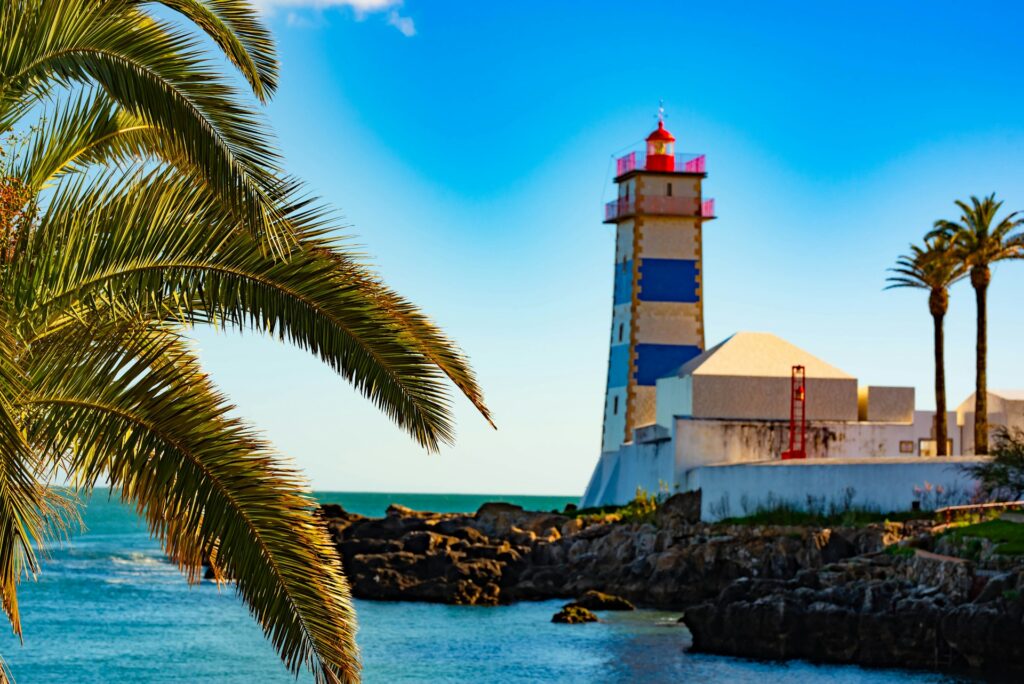
International Schools in Algarve
- Aljezur – Aljezur International School
- Faro – Colégio Santiago Internacional
- Lagoa – Educan, Algarve
- Lagoa – Algarve International School
- Lagoa – Nobel Algarve British International School
- Lagos – Barlavento International Primary School
- Lagos – Vale Verde International School
- Loulé – Montalvo International School
- Loulé – Eden Montessori International School
- Loulé – Nederlands Onderwijs Algarve Portugal
- Loulé – Eupheus International School Algarve
- Loulé – Vilamoura International School (CIV)
- Olhão – Colégio Bernardette Romeira
- Silves – Deutsche Schule Algarve
Map of International Schools in Algarve
International Schools in Porto and Braga
- Porto – CLIP Oporto International School
- Porto – Lycée Francais International Porto
- Porto – Oporto British School
- Porto – Deutsche Schule zu Porto
- Braga – CLIB: The Braga International School
International Schools in Other notable areas
- Setúbal – International School of Palmela
- Setúbal – Seixal International School
- Setúbal – St. Peters International School
- Leiria – CLIC: Colegio Luso-Internacional de Centro
- Madeira – The International School of Madeira
- Madeira – International Sharing School Madeira
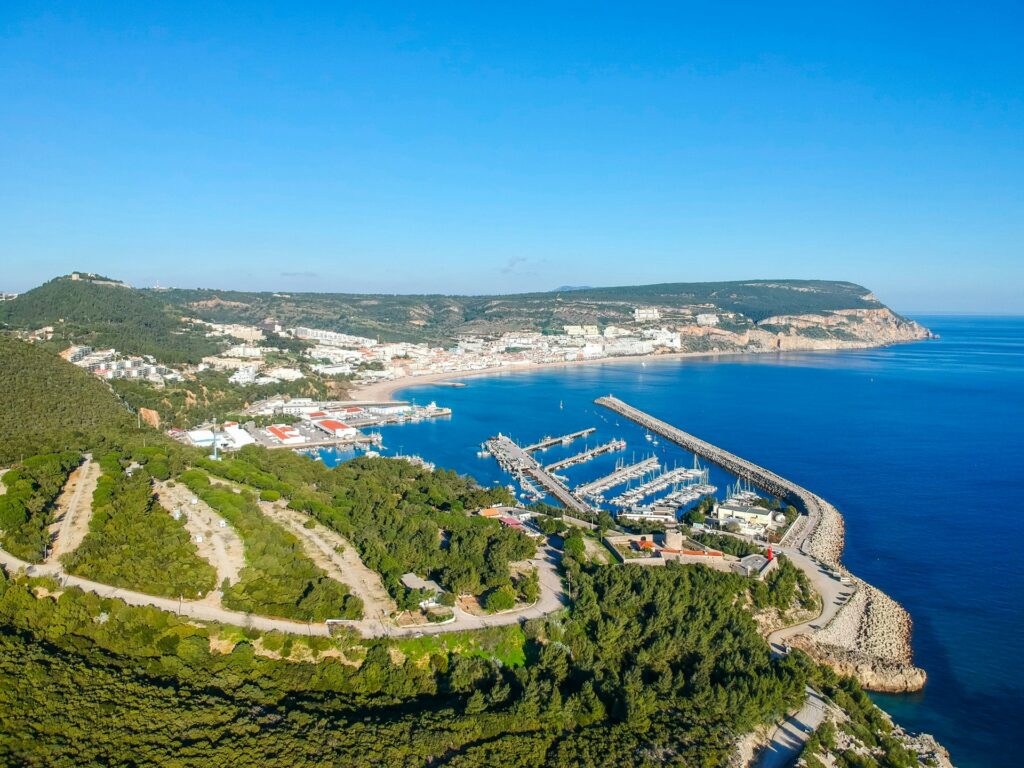
School Admissions Process: How It Works
Applying to International Schools in Portugal is usually a straightforward process, but it’s important to plan ahead. Schools often have limited seats, especially in popular locations like Lisbon or the Algarve.
When to Apply
Most schools open admissions between January and March for the next academic year, which typically begins in September. However, many accept students throughout the year if space is available and this is helpful for families relocating on short notice.
Documents Needed
Each school has its own rules, but generally, you’ll need:
- A completed application form
- Copies of your child’s passport or ID
- School records from the past one or two years
- A recommendation letter from a teacher or school
- Language test results (for older students, if required)
- Medical records or vaccination certificates
Some schools may also ask for a short interview—either in person or online—to get to know your child and understand their needs.
Admission Tests
Not all schools require entry exams. But if the school has a strong academic focus or high demand, they may test your child in math, English, or another subject. This helps place them in the right class level.
Waiting Lists
Popular International Schools in Portugal often have waiting lists, especially for early years and primary levels. If you are interested in a specific school, it’s best to apply early, even one year ahead if possible.
Language Support
Don’t worry if your child is not fluent in the language of instruction. Many schools offer language support, especially for English, French, or German curriculums. Some also provide special help for children coming from different academic backgrounds.
In short, while the process is not difficult, being prepared and applying early can make a big difference. The growing number of families moving to Portugal means more competition for seats at top International Schools in Portugal, so starting early helps you secure a spot.

International School Fees in Portugal
When it comes to choosing International Schools in Portugal, understanding the full cost is important. Fees can vary a lot depending on the school’s location, curriculum, and grade level.
Tuition Fees
On average, tuition at international schools in Portugal can range from:
- €6,000 to €12,000 per year for kindergarten and early years
- €10,000 to €18,000 per year for primary and middle school
- €15,000 to €22,000 per year for high school or diploma years
Schools in Lisbon and Cascais tend to be more expensive, while those in Porto or smaller cities may cost slightly less.
Registration and Admin Costs
Almost all International Schools in Portugal charge a one-time registration or enrollment fee when a student is accepted. This can range from €500 to €2,000. There may also be yearly administrative charges or capital development fees.
Extra Costs to Consider
Besides tuition, parents should also plan for:
- Uniforms: Required at most schools
- School meals: Usually optional, but charged monthly
- Books and supplies: Some schools include them in fees, others don’t
- Transport: School bus services cost extra
- Trips and clubs: Optional activities like ski trips, science camps, or coding clubs
Payment Options
Some schools allow monthly payments, while others ask for fees term-wise or yearly. Discounts are sometimes available for siblings or for early payment.
While the cost of International Schools in Portugal may seem high, many families feel the quality of education, strong academic support, and global recognition make it a good investment in their children’s future.
For families moving to Portugal for work or business, some companies may also include school costs in the relocation package. It’s always worth asking your employer if education support is part of your benefits.
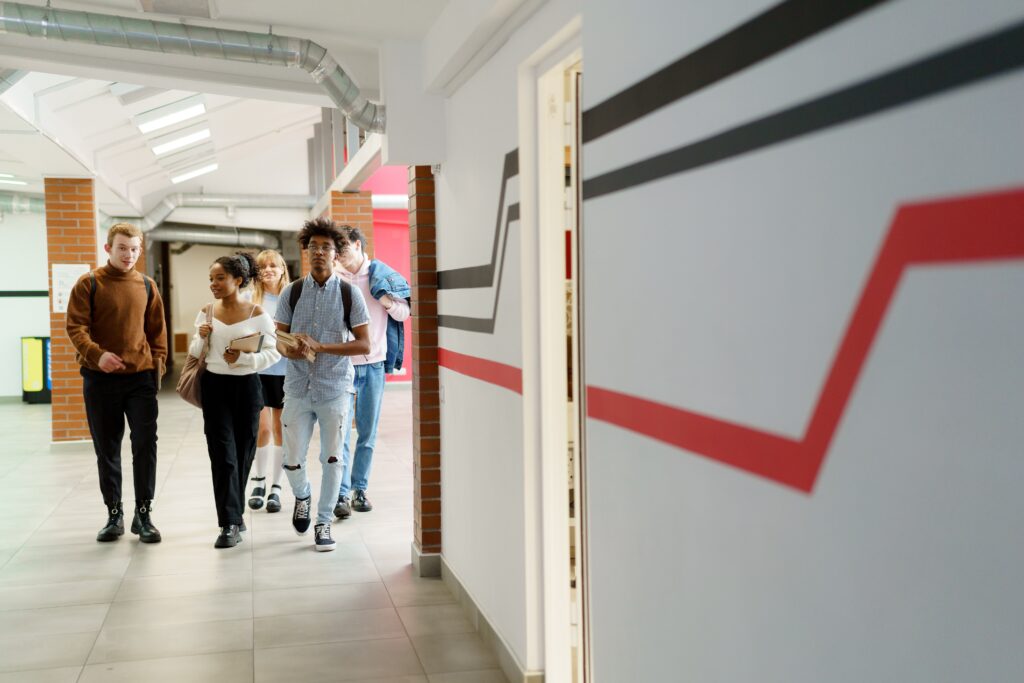
Living Near Your Child’s School
Choosing to live close to your child’s school can make daily life much easier. In bigger cities like Lisbon or Porto, traffic can slow you down, especially during busy school hours. That’s why many families prefer to stay within a short drive or even walking distance from school.
Most International Schools in Portugal are located in safe, family-friendly neighborhoods. In Lisbon, areas like Cascais, Estoril, and Carcavelos are popular choices. These places not only offer a peaceful lifestyle but also give children easy access to green spaces, beaches, and sports clubs.
In Porto, neighborhoods such as Foz do Douro and Boavista are near good schools and offer a balanced mix of quiet living and city convenience. The Algarve also has schools close to residential areas in Lagoa, Almancil, and Faro.
Rent prices vary based on location. Expect to pay more near international schools, especially in sought-after areas. However, many parents say the extra cost is worth the time and stress saved on long school runs.
Learning Support and Extra Help
Every child learns at their own pace. That’s why many International Schools in Portugal offer extra learning support for students who need it. Whether it’s help with English, math, or adjusting to a new education system, these schools are prepared to give each child the attention they deserve.
Language support is common, especially in schools that teach in English or other non-Portuguese languages. If your child needs help improving their speaking, reading, or writing, special programs are available during or after school hours.
Some schools also have dedicated teams for students with learning differences like ADHD, dyslexia, or autism. These students may get one-on-one guidance, adjusted lessons, or even classroom aides to help them succeed without feeling left out.
Parents can usually meet with learning coordinators to discuss their child’s needs before or after admission. This open approach makes families feel more confident in the school’s ability to support their child’s progress.
In short, International Schools in Portugal try to make sure no student is left behind. Whether your child is catching up or aiming ahead, these schools create a space where learning feels comfortable and positive.

After-School Life: Sports, Arts, and Clubs
Learning doesn’t end when classes are over. Many International Schools in Portugal offer a wide range of after-school activities that help children build confidence, make friends, and explore their interests beyond textbooks.
Sports are a big part of school life. Football (soccer) is the most popular, but students can also join basketball, swimming, tennis, and even martial arts clubs. These programs help kids stay active, work as a team, and learn discipline in a fun way.
Arts and music are also strongly encouraged. From painting and drama to orchestra and choir, students get to express themselves creatively. Some schools even host annual plays, concerts, and art shows where parents can see what their children have learned.
In recent years, many schools have added clubs for coding, robotics, debate, and languages. These help students gain skills that are useful in modern life and future careers.
The goal of these programs is to support the full development of the child and not just academics. That’s one of the reasons why International Schools in Portugal are seen as great places for kids to grow, learn, and enjoy school life both inside and outside the classroom.
How We Can Help You Relocate to Portugal
We understand that moving to a new country is about more than just finding the right home. When you’re navigating visas, housing, schools, and settling in, it can quickly become overwhelming.
That’s why we proudly work with Portugal Residency Advisors® —our trusted partner for immigration and relocation support.
Their team specializes in helping expats apply for the right residency option, including the D7 Passive Income Visa, the Portugal Golden Visa, and the Digital Nomad Visa. They simplify the process, handle the paperwork, and ensure no step is missed.
They provide tailored advice that fits your goals and lifestyle. Through their trusted network of professionals in real estate, legal services, and banking, you’ll always have the right people by your side.
Frequently Asked Questions About a guide to international schools in portugal
What age can my child start international school in Portugal?
Most schools accept children from age 3 or 4 for early years and continue through high school.
Are lessons only in English at international schools?
While many schools teach in English, others offer French, German, or bilingual options.
Can Portuguese children attend international schools?
Yes, many local families choose these schools for global education and language learning.
Are there any boarding international schools in Portugal?
Yes, a few schools offer full or weekly boarding options, mainly in Lisbon and the Algarve.
What languages are international schools in Portugal taught in?
Most international schools in Portugal offer classes primarily in English, though some also provide bilingual programs in Portuguese, French, German, or other languages, depending on the school’s curriculum.
How early should I apply for a seat?
It’s best to apply 6–12 months before your desired start date to avoid waiting lists.
Is the IB Diploma offered widely in Portugal?
Yes, several International Schools in Portugal are certified IB World Schools offering the full program.
Do schools help with university admissions?
Yes, most have college counselors who guide students in applying to universities worldwide.
How much do international schools in Portugal cost?
Tuition fees vary widely, generally ranging from €6,000 to €20,000 per year, depending on the school, location, and grade level. Additional costs may apply for meals, uniforms, transportation, and extracurricular activities.
Do international schools in Portugal accept students mid-year?
Yes, many international schools offer rolling admissions and accept students throughout the year, especially those who are relocating from abroad.
What curricula do international schools in Portugal follow?
International schools in Portugal may follow various curricula, including the British (IGCSE/A-Levels), American (AP), International Baccalaureate (IB), French, or German systems.
Are international schools in Portugal open to both expats and Portuguese families?
Yes, international schools in Portugal welcome both expatriate and Portuguese students. Many Portuguese families also choose international schools for their global approach and English-language instruction.